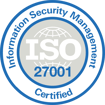Private Company Limited by Shares
A private limited company is an entity registered to the Accounting and Corporate Regulatory Authority (ACRA) of Singapore under the Companies Act (Chapter 50). The Constitution of a private company must provide for (i) maximum up to 50 shareholders; and (ii) restriction to the right of shareholders to transfer the company’s shares. Shareholders can be either individuals or corporations, and the name of the entity shall include the suffix “Private” or “Pte” and “Limited” or “Ltd”.
An Exempt Private Company (EPC) is a Private Company exempted from statutory annual audit and its shareholders shall be 20 or less without corporations holding any interest in the company’s shares.
Incorporation requirements
A Private Company is the most common flexible and preferred type of business structure among entrepreneurs in Singapore.
The requirements for the incorporation are the following:
![]() The company must have at least one shareholder, but no more than 50;
The company must have at least one shareholder, but no more than 50;![]() Minimum paid-up capital of SGD 1.00;
Minimum paid-up capital of SGD 1.00;![]() At least one director must be “ordinarily resident” in Singapore, i.e. being a Singaporean resident (Citizen of Singapore, or Foreigner holding a Permanent resident visa, or a foreigner holding an work visa and employed by the same company)
At least one director must be “ordinarily resident” in Singapore, i.e. being a Singaporean resident (Citizen of Singapore, or Foreigner holding a Permanent resident visa, or a foreigner holding an work visa and employed by the same company)![]() A registered office address (it cannot be a P.O. box)
A registered office address (it cannot be a P.O. box)![]() A Singapore-based company secretary must be appointed within six months from the day of incorporation
A Singapore-based company secretary must be appointed within six months from the day of incorporation![]() An auditor must be appointed within three months from the day of incorporation (except for small companies which are exempt from auditing obligation)
An auditor must be appointed within three months from the day of incorporation (except for small companies which are exempt from auditing obligation)























